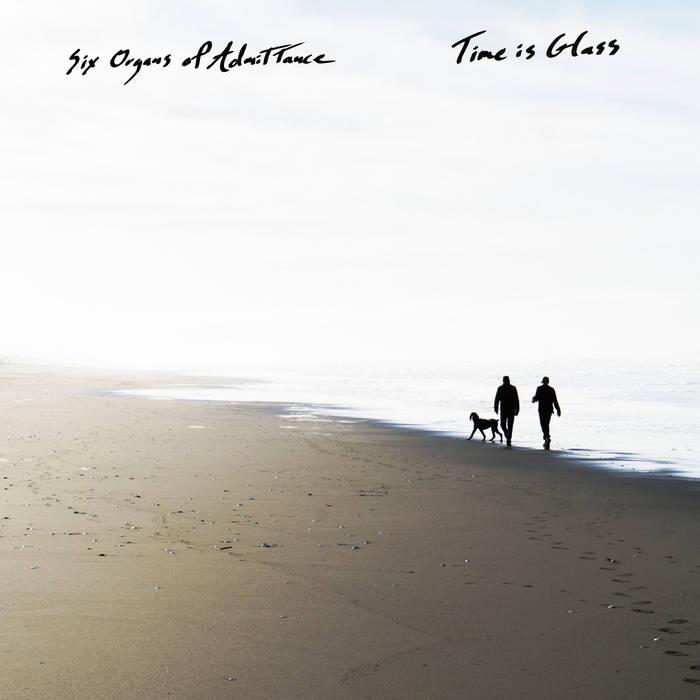
Microwave "Let’s Start Degeneracy"
The fourth full-length record from Atlanta’s Microwave is a trip. It all begins with the misty synth strikes and cosmic transmission warbles of “Portals,” before hazy, dripping-wet guitar chords settle in. The song, an adaptation of the traditional Christian hymn “Softly and Tenderly,” is true to its new name, as liminal and fleeting as it is gripping and emotional. It’s an enormous, gentle, enveloping introduction to what will be explored: life and death, happiness and freedom, the real and unreal. This is Let’s Start Degeneracy, the long-awaited new album from Microwave, releasing on April 26 via Pure Noise.
It’s an emo record, but perhaps only categorically speaking. It contains multitudes: ambient, pop, R/B, punk, and experimental sounds float in and out of one another as the record moves through scenes, experiences, and feelings, all of them rippling with a purity of intention and translation that mark the best artistic works of “psychedelia.” Vocalist/guitarist/producer Nathan Hardy, bassist Tyler Hill, and drummer Timothy Pittard have created something that resembles a concept record, but it’s the sort of concept that’s impossible to contain in just one phrase or word or sound.
The record’s title, taken from a conservative politician’s take on drugs in 1970, captures this liberated spirit. There are no rules, and there is nothing to be ashamed of. “It’s about letting go of attachments and behaviors that aren’t serving you, and trying to shake off your programming and not be motivated by fear and guilt and shame,” says Hardy.

Chuuwee & iMaginery Other "NxBoDies"

Six Organs of Admittance "Time is Glass"
Once again, Six Organs of Admittance showcases the intricate tangle of fingers on the fretboard and flash of lens flare slicing the air, as the future arcs 360 degrees around to become a part of the past as well. Oscillations in this glass bowl ripple outward eternally, but are rooted on the ground where all the creatures are moving and communing; humans too. An intimate cosmic expression, file under: rural-industrial psych, ecosystem goth.

claire rousay "Sentiment"
claire rousay is a singular artist, known for challenging conventions in experimental and ambient music forms. rousay masterfully incorporates textural found sounds, sumptuous drones and candid field recordings into music that celebrates the beauty in life’s banalities. Her music is curatorial and granular in detail, deftly shaped into emotionally affecting pieces. sentiment is a meditation of the poignant emotional terrains of loneliness, nostalgia, sentimentality, guilt, and sex. The album’s narrative arc is guided by delicate musical gestures and artistic vulnerability, audaciously synthesizing disparate and unexpected influences. rousay crafted the songs in various homes, bedrooms, hotels, and other private places, the feeling of time and energy spent alone radiating from each passage. The album is a collection of heart-rending, incisive pop songs that explore universal feelings with subtlety and remarkable vision.
rousay’s vocals and guitar take center stage on sentiment. Her intimate, diaristic lyrics contrast with her mechanical-inflected vocal effects, emphasizing a powerful desire for connection, a deep yearning and a lingering sense of separation. The spare guitar playing and laconic tempo both drive the songs and exude a sense of resignation. Her delicate mastery of nuance draws on her explorative musical past that she, with sincerity and admiration, seamlessly interweaves into her adventurous textures and distinctive compositions. “I want to belong to the worlds and communities I look up to. Same as someone using a Fender guitar or dressing like Kurt Cobain. Emulate your heroes,” says rousay.
From a sprawling math-rock duo, to an array of emo-inflected rock outfits to a hired hand in evangelical worship bands, rousay worked as a percussionist for over a decade before shifting her focus to the solo collage work she’s known for. sentiment folds those experiences into her compositions. rousay explains, “As the drummer in an evangelical rock band, it’s your job, with the singers, to manipulate the crowd. You start building on the drums and you know it’s one bigger chorus and then we’re out and you can see the tears, people just start crying. I still feel a version of that when playing my own shows now.”
The album balances the poetic soul of her influences with a documentarian heart, rousay capturing moments of her life while living alone in houses across the country, learning to play guitar, and reconnecting with pop music. “I have been on a quest to communicate my feelings and ideas as clearly as possible lately. Pop seemed like the way to do that this time,” says rousay. The confessional nature of sampled fragments of conversation give her pieces a specificity and sense of intimacy that is both immediate and curious. rousay’s innate ability to conjure pure feeling from sound derives from her delightful embrace of pop forms, the vulnerability found in field recordings, minimalistic arrangements and innovative sound choices. The resulting songs of sentiment are as anthemic as they are breathtakingly personal. sentiment is blissfully, achingly melancholic, and an undeniably sensual listening experience.